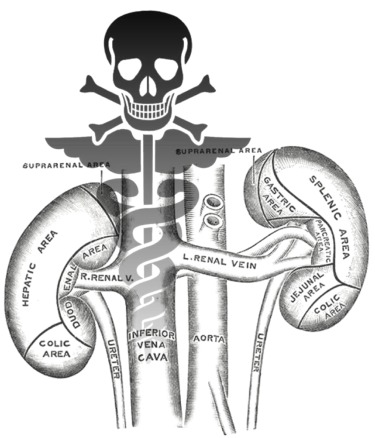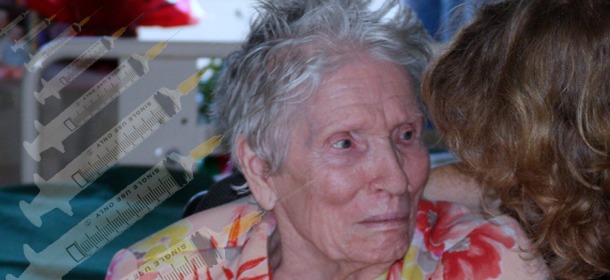Natural Health
Failure of Hyped Kidney Drug Trial Reveals Major Flaw in Allopathic Medicine
A trial expected to demonstrate the drug sulodexide’s ability to halt kidney failure was a disaster for Keryx Pharmaceuticals, the manufacturer. Keryx funded the international trial, anticipating that it would be a major success. By the typical way that allopathic medicine addresses health issues, it should have been. Its failure reveals a gaping flaw in much of allopathic medicine’s approach to both healing and drug approvals.
Sulodexide had been trialed, seemingly successfully, over more than a decade. It had been shown to significantly reduce albuminaria, protein in the urine, which has long been recognized as an important marker for nephropathy—kidney damage and failure. It was even shown to be effective for an extended period after use. So, Keryx took the step that should always be taken in drugs. They attempted to see if it actually prevented kidney failure itself. It didn’t.
What went wrong?
Major Flaw in Conventional Medical Paradigm
Conventional medicine often treats symptoms as if they were the disease. In the case of kidney failure, it is well understood that protein in the urine is indicative of kidney damage. So, it was reasoned that reducing protein levels in urine would prevent that damage and thereby prevent death from kidney failure. Obviously, it didn’t work that way.
The conceptual problem is that urinary protein is merely a symptom, not the disease itself. Reducing it does not mean that the kidneys are functioning properly or that the underlying course of the disease is changed.
This flawed understanding is often fatal for patients. Fortunately, sulodexide was investigated to see if it actually reduced the incidence of kidney failure in diabetics. Presumably, future patients will be spared it.
Unfortunately, trialing for the real-life outcome in patients is usually not how pharmaceutical drugs are tested.
In fact, some of the most prevalent and heavily promoted drugs do not address the real issue, whether patients actually improve and survival rates are increased. The same sort of thing is done when investigating non-drugs, like salt. Rather than look to see if survival is improved, researchers focus on a marker.
That has resulted in the impression that some of the most prominent drugs are effective, when they are not—often even producing more harm than good. Statins, which lower cholesterol, are a prime example. Focusing on cholesterol misses the real issue. Cholesterol is a marker, it isn’t the disease. That’s why studies on statins focus primarily on cholesterol levels, rather than rates of heart attacks and deaths, except in narrowly defined ways that evade showing the full picture—and it’s why high cholesterol is now defined as a disease.
Perhaps the increasingly aggressive statin treatment has something to do with the ever-increasing mortality from heart disease.
Salt is another example. It does, minimally, reduce blood pressure, which is a marker for heart disease. This connection, though not a strong one, has produced near hysteria in societal attempts to reduce salt intake. The reality, though, is that studies focusing on deaths from heart disease, along with all causes of mortality, tend to find that disease rates increase with lowered salt intake.
Now, though, we have another non-disease: high blood pressure. It’s also treated with drugs, a wide variety, in fact: ACE inhibitors, angiotensin receptor blockers, calcium channel blockers, diuretics, and beta blockers. Indeed, we have a huge number of healthy people who’ve been convinced that they might suffer heart attacks simply because they are positive for the marker, high blood pressure. So, rather than focus on improving underlying health through natural means, like better diet and exercise, people—often pushed into it by their doctors—take one or more of the array of pharmaceuticals designed to lower blood pressure.
Naturally, patients who take these drugs end up becoming sicker. Angiotensin receptor blockers are associated with pulmonary (lung) cancer. Perhaps the spiraling rate of lung cancer—in spite of significantly lower rates of smoking—is, at least in part, fueled by these drugs.
Conventional Medicine’s Fatal Flaw Revealed
Allopathy—conventional medicine—keeps failing to save lives, with a few rare exceptions. People are drawn into the system with promises of improved health based on disease markers. Heart drugs are a prime example, but there are many others, most notably drugs given to children for a host of conditions, including asthma, diabetes, intestinal tract disorders, and presumed mental disabilities.
Once inside the system, it can be difficult to get out. The drugs don’t promote health. They are, in fact, poisons that have an effect of forcing one particular disease marker to improve. That improvement is, we’re told, an indication of the drug’s effectiveness. But it isn’t an indication of the drug’s ability to cure the disease or prevent death. It is merely forcing, through the use of a poison, that marker to change. The underlying condition remains, continuing to depress health.
Worse, all pharmaceutical drugs have adverse effects. As often as not, those adverse effects are worse than the condition being treated. So, once inside the system, patients find themselves on a never-ending path of deterioration. This is generally explained as the natural course of the disease. It’s nothing of the sort!
Allopathy Stuck in a Rut
Allopathy is stuck in this vicious cycle. As a result, anyone who subscribes to that method of treatment is also stuck on a path to ever-worsening health once committed to the standard therapies offered for most conditions. As long as symptoms are treated as if they were the disease, the entire focus of the profession is misguided.
People have a choice—at least, they do now. They can take their health into their own hands and find real solutions to most of what ails them. Or, people can be puppets of a system designed to bring profits first, using patients as their tickets to wealth while ignoring the very real life-destroying and life-shortening effects of their treatments.
Ultimately, it’s up to the individual. Each of us needs to remember that the only one living inside your skin is you. The person who experiences the effects of treatment is the one inside your skin—not your doctor, not your friends, and certainly not the pharmaceutical firms creating the poisons from which they profit.
References:
- Kidney drug fails to work in international trial
- Sulodexide Fails to Demonstrate Renoprotection in Overt Type 2 Diabetic Nephropathy
- Medication for High Blood Pressure
- Oral LMW heparin reduces microalbuminuria in diabetic nephropathy
- Oral sulodexide reduces albuminuria in microalbuminuric and macroalbuminuric type 1 and type 2 diabetic patients: the Di.N.A.S. randomized trial
- Albuminuria: A Great Risk Marker, but an Underestimated Target in Diabetes
Tagged alzheimer’s diabetes, big pharma, conventional medicine, keryx pharmaceuticals, keryx sulfodexide, modern medicine, natural health, pharmaceutical drugs, pharmaceutical poison, pharmaceuticals, sulfodexide
Related Posts
-
http://www.facebook.com/people/Maggie-Parkinson/100002294187119 Maggie Parkinson
















